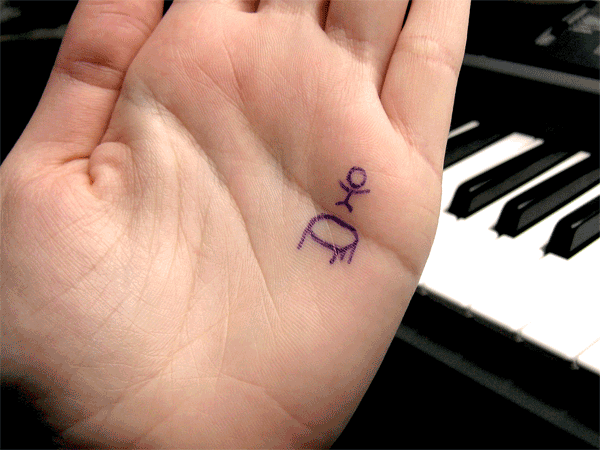01
02
04
05
06
07
08
09
10
11
12
13
14
15
16
17
18
19
20
22
https://www.youtube.com/watch?v=j47MYli8pj4
23
24
25
27
29
30
35
36
39
40
There are several ways you can purchase auto insurance. You can buy it over the Internet at literally hundreds of different web sites. You can call an 800 number and buy it over the phone directly from an auto insurance company. You can call an insurance agent. In some cases, you can buy it at your bank or credit union.
It's not surprising you can buy it in so many ways. After all, there are hundreds of insurance companies that sell auto coverage in your area. How do these companies differentiate themselves? Some brag about their superior service when you have a claim. Some tout how easy it is to buy from them. And, often, auto insurance companies try to compete on price, just as if you were buying a plane ticket, a CD or a soda pop.
* Tip. Some people believe auto insurance is just a commodity. It's not.
You're not buying a soda. You're protecting your financial well
being...and the choices you make could affect you for the rest of your
life.If you think auto insurance is a commodity, consider this:
A person with a good driving record will pay three, five, even 10 times less than a driver with a couple of tickets, an accident or who has been cited for and convicted of driving under the influence.
A person who lives in a major city - say Los Angeles, Chicago, Houston or Denver - will pay three, four, even five times more than someone who lives in a rural area or small town, even though the two have the same driving records.
Auto Insurance: How Much Should You Buy?
Most states require you to have auto insurance. But they don't require you to have much. In states that have so-called mandatory auto insurance laws, all you are required to buy is a little bit of liability coverage. This is so you can pay for some of the damage your car does to other cars and other people who are not in your car.How much are you required to buy? In many states with mandatory auto insurance laws, the minimum needed is liability that provides 1) $15,000 for any person involved in an accident with you, 2) a maximum of $30,000 for all persons in the accident, and 3) $5,000 for damage to the other vehicle(s) involved. That's not much. In fact, it's next to nothing.
* Tip. The minimum
amount of insurance required by most states is not much. Seriously
consider getting more coverage in order to protect your financial
health.
* Note. Notice that
mandatory auto insurance laws do not require you to buy coverage for
your own car. Or coverage for your injuries. Or coverage if you are hit
by someone who doesn't have insurance.
If you buy just the minimum coverage required by law, you are
leaving your assets at considerable risk. Your car, obviously. And your
home, if you are at fault in an accident that causes serious injuries
to the other parties.How far do you think $5,000 will go if you total somebody's Lexus? Not far enough!
Little Known Fact: There Are Six Distinct Coverages in an Auto Policy
Auto insurance is a product with six distinct coverages.Let's look at them here:
- Bodily Injury Liability - This pays the medical and other expenses of those people injured or even killed in accidents you cause. This is required by most states, usually with a minimum coverage of $15,000 for any person involved in an accident with you and no more than $30,000 for all the persons in the accident.
- Property Damage Liability - This covers the damage your car causes to property. Usually, that's the other car or cars involved in the accident, but it also covers damage you do to any object you hit; garages, buildings, lampposts, fences, whatever. This is also required in most states, usually with a minimum coverage of $5,000.
- Collision - This is for damage done to your car when it collides with other vehicles (your fault) or other objects (again, your fault).
- Comprehensive - This covers damage to your car resulting from something other than a collision with another vehicle. For example, damage caused by vandals or a wind-blown tree hitting your car. It also includes coverage for theft.
- Medical Payments - This pays medical, and even funeral, expenses for you as well as members of your family and passengers in your car if it is involved in a collision, regardless of who caused the accident. It also covers you as a pedestrian if a vehicle hits you.
- Uninsured/Underinsured Motorist - This pays for injuries to you and, in some policies, damage to your car if you are hit by a driver who doesn't have insurance - or by someone who doesn't have enough insurance to cover your losses. In most states, more than 10% of motorists don't have any insurance. In some states, as many as three out of 10 drivers don't have coverage.
There are Even More Coverages Available...
There are some additional coverages you can buy. You can purchase towing coverage, which will pay the costs if your car needs to be transported after an accident. If you're a member of an auto club, you don't need this coverage.You can buy rental reimbursement, which will pay for a rental car while your vehicle is being repaired. (If the accident was not your fault, the cost of the rental car is automatically picked up by the other person's insurance company.)
What are the Various Options for These Different Coverages?
While there are six main coverages in an auto insurance policy, there are numerous options to consider for each coverage.
How much insurance do you need?
Bodily Injury Liability
You can buy the minimum required by law, say $15,000 per person, $30,000 per accident. Or you can buy limits as high as $500,000, even $1 million. Remember that someone you hit can sue you for everything you have.
* Tip. If you have a home, own stock and have a decent income, you should probably buy, at minimum,
limits of $100,000 per person, $300,000 per accident. If you have more
than $300,000 in assets, you should buy higher limits or an umbrella
policy. Consult with your professional agent about this!
Many auto insurance companies now sell what are called combined
single limit (CSL) coverages, which have no per-person limit. If you
buy, say, $300,000 CSL, that means your policy will pay a maximum of
$300,000. All of that could go to one person, if needed.Some companies include property damage liability in the CSL, which means that if you total someone's antique car, your policy could pay up to $300,000 for property damage. CSL coverage costs more than traditional limits, but it can be worth it if you have significant assets.
* Tip. Many insurance agents believe CSL is so important to have, they strongly urge their clients to buy it if it is available.
Property Damage Liability
Several years ago, $25,000 was considered the maximum most people needed for this coverage. Not anymore. There's a lot of $50,000, $60,000, even $70,000 cars and sport utility vehicles on the road these days.* Tip. Because of all the super-expensive cars on the road today, you should seriously consider at least $50,000 of coverage, assuming you don't have CSL coverage; $75,000 might be preferred.
Collision
Consider how much you can afford to pay to have your car fixed if you have an accident. Auto policies have several deductible options.
* Note. A deductible is
the part you pay before the insurance kicks in. You can buy deductibles
of $100, $250, $500, even $1,000. The lower the deductible, the more
this coverage will cost.
Unless you're planning to have a lot of accidents, it's probably a
good idea to have a deductible of at least a couple of hundred dollars.
(By the way, the deductible does not apply if someone else hits you and
that person's insurance is used to pay for your car's damages.)Comprehensive
Like collision, there's a deductible with comprehensive, although it is often lower. For example, if you have a $250 deductible for collision, your comprehensive deductible will be, say, $100.
* Note. While collision
and comprehensive will pay for damage or loss to your car, neither
coverage will pay for everything on or in your vehicle. Most policies
exclude things like CB radios, two-way radios, car phones, cassettes
and CDs.
If you add special features to pickups, vans or SUVS, these things
probably will be excluded as well. In fact, it's a good idea for you to
talk to your insurance agent about any high-tech equipment or special
features you have added to your vehicle.Many, perhaps even most, of these features aren't covered in the standard policy. It is possible, however, to obtain special coverage for any high-tech equipment or special features your vehicle may have. Your agent can advise you of the options.
Medical Payments
(also called Personal Injury Protection) - Some people elect not to buy this coverage because they believe their health insurance coverage is enough. That's true - to an extent.
* Note. Unlike your
health insurance, medical payments coverage can reimburse you for
income lost as a result of injuries suffered in an auto accident.
However, medical payments coverage is not nearly as comprehensive as
most health insurance plans. Medical payments coverage, which usually
costs less than $100 a year, is probably a good buy for most people.
Medical payments coverage also provides protection for passengers in
your vehicle for medical expenses incurred and income lost. In some
states, medical payments coverage is not relevant. These are states
that have so-called no-fault auto insurance systems. Basically,
regardless of who's at fault, your insurance company pays for damage to
your car and/or injuries you incur. Personal injury protection is
included as part of your coverage.Uninsured/Underinsured Motorist
For most people, it's a good idea to have the same limits for UM/UIM as you have for bodily injury liability. But remember, UM/UIM coverage is for you. It pays for your injuries and, in some policies, damage to your car if the person at fault in an accident with you cannot. Since it's wise to base your liability limit on what you have to lose, you should do the same with UM/UIM.Who is Covered When You Buy Auto Insurance?
All the coverages in your auto policy apply when you are driving, but they also apply when other people are driving your vehicle. The coverages are actually for the car, not the person.
* Note. If someone is going to be a regular user of your car, that person's name needs to be added to the policy.
Your insurance company wants to know who's going to be using the
car. After all, you could be a great driver with no tickets or
accidents, but your spouse, your teenage child, or your reckless cousin
could be a lousy driver.If you let these people drive your car without telling your insurer and these people keep getting in accidents, your insurance company isn't going to be happy. In fact, they may cancel your policy.
* Tip. It's not wise to
risk losing your policy by failing to disclose who's driving the
insured vehicle. Keep in mind, however, that if you add drivers with
lousy records or who haven't had much driving experience, your premiums
will go up.
Any parent of a driving teenager can tell you this; teenagers are
notorious for getting tickets and having accidents. They are also very
inexperienced drivers. As such, when your child gets his or her
license, your insurance premiums will go up when he or she is added to
the policy.If you buy all six of the major auto insurance coverages, your policy will cover you in most instances in which you cause damage or injury to your car, yourself and your passengers, or drivers and passengers in other vehicles.
But not all.
* Note. The standard
auto insurance policy has some "exclusions," which is insurance-ese
for, "We won't cover that." Here are some examples where your auto
policy won't provide coverage:
- If you intentionally try to cause damage to your car or another vehicle. This includes liability coverage.
- If you are using the vehicle to transport other people for a fee. (This does not apply to car pools where the expenses are shared.)
- If you are using the vehicle for certain business activities. This does not include traveling to see clients or taking a standard business trip.
- If your vehicle sustains damage caused by normal wear and tear, freezing, mechanical or electrical breakdown, or road damage to tires.
- If your car is damaged because of radioactive contamination, intentional or accidental discharge of nuclear weapons, war, insurrection, rebellion or revolution.
Important Question: What are You Using Your Vehicle for?
You can get sideways with your insurance company because you haven't been upfront about how you are using your vehicle. For example, do you drive your car to work? If so, you will pay more for auto insurance than if you take mass transit. In fact, the further you have to drive to work, the more you will pay.
* Tip. If you drive to
work and tell your insurance company you don't, you have basically
committed fraud. Resist this temptation, even if it might save you a
few dollars.
* Example. Say you have
an accident on the way to work. Say, also, that you have told your
insurance company you don't drive to work. Your insurer could
technically argue that it is not obligated to provide coverage and
you've given them a good reason to cancel your policy.
Honesty is the best policy when it comes to insurance. Insurance
fraud is a huge problem in this country; claims are frequently padded
with nonexistent damages; accidents are staged and injuries are faked.
* Fact. It is estimated
that fraud accounts for as much as 25 cents to 30 cents of every auto
insurance premium dollar. Think about that. If even half the auto
insurance fraud in this country were wiped out in the next year, you
would pay 12% to 15% less for your next policy.
Personal Car for Business, Company Car for Personal Use
Do you use your personal car for business? Do you have access to a company car? If the answer to either question is yes, you could have potential coverage gaps.
* Example. Let's say you
use your personal car for business. It's possible your employer is
providing some coverage for you through your employer's commercial auto
policy. Some coverage. In most cases the coverage is for liability
only, and often this commercial auto policy doesn't even apply until
the limits on your personal auto policy are exhausted. (This is what
insurance people call "excess" coverage.)
* Tip. You should talk
to your employer about what, if any, coverage is available to you
through the company's commercial auto policy. That way, if you have an
accident while on company business, you know who (or which insurance
company) to call.
If you use your personal car for regular business purposes - trips,
visiting clients, etc. - your personal auto policy probably provides
enough coverage for these activities. (Assuming you have "enough"
coverage to begin with.)But what if your car is actually a source of revenue? You make deliveries, for example. In that case, you likely need a commercial auto policy as well.
* Note. If you have an
accident while delivering a product or using your car as a taxi, your
personal auto insurer may deny your claim. Talk to your agent to make
sure you have coverage for all the business activities for which you
use your car.
What about company cars? They can be an insurance problem, if you
use the company car for business and pleasure, particularly if you
don't have a car of your own. If you don't have a car, you probably
don't have a personal auto policy. If you don't have a car (or personal
auto coverage) and use a company vehicle for pleasure, you are inviting
disaster if you have an accident during a pleasure trip.
* Tip. If you are in this situation, you should have what is called a non-owned personal auto policy.
Such a policy can also come in handy if you don't have a car and you
rent a vehicle on a trip. Your non-owned auto policy will cover you and
your rental car if you have an accident. Otherwise, you would probably
need to buy coverage from the rental car company, coverage that is
very, very expensive.
* Tip. You can have
coverage gaps even if you have a personal auto policy and use a company
car for pleasure or if your spouse or children use the company car for
pleasure. Find out from your employer the extent of coverage that is
available for your corporate car. Once you know the extent, talk to
your insurance agent about any additional coverage you might need.




























